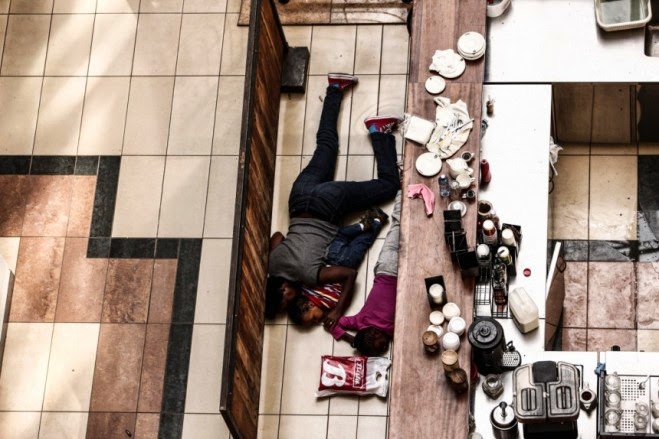Vitamin C's graduation song, anyone remember this one? (Sorry for the cliche).
Yeah so, this is it I guess. They say starting to write is the most difficult part - you just have start somewhere, but I think the end is just as hard. I guess this would be the time to pass on my 'learning experiences' from my stay in Uganda, maybe sum up the good things vs. the harder ones, or just write a hell of a thoughtful, provoking last post as food for thought. But honestly, I've got nothing for you...
Except for this, this is good!
It's Really Cool That You Studied Abroad In Africa. But The Way You Talk About It? Not So Cool.
I'll never forget the look of surprise and wonder on my sixth-grade geography teacher's face when looking at a photo of the Johannesburg cityscape. I can't remember the exact photo, but this one will do:

Beautiful right? I kid you not, she exclaimed: "WOW! I had no idea they had cities in Africa!"
Did I mention this was a private school? Talk about face palm central. The thing is, it's not uncommon for people, even EDUCATED people, to assume that Africa is just one big desolate country (ahem, it's a continent y'all) filled with starving kids, bare-breasted women, and wild animals. Spoiler alert: It's not.

Beautiful right? I kid you not, she exclaimed: "WOW! I had no idea they had cities in Africa!"
Did I mention this was a private school? Talk about face palm central. The thing is, it's not uncommon for people, even EDUCATED people, to assume that Africa is just one big desolate country (ahem, it's a continent y'all) filled with starving kids, bare-breasted women, and wild animals. Spoiler alert: It's not.
Yeah okay so the video is a bit weird, but the author has some good points. I just read this 'article' on Instagram (you know those long captions that are more like paragraphs?) about an American Peace Corps Volunteer who was in Uganda working on a coffee farm close to the Rwenzori Moutains, and how she went on and on explaining how different it was, how life was much simpler without any cell phones, but also simultaneously harder with the 5-hour walk every day to get water. But you know, it was a great learning experience, seeing how these 'Africans' got on with their lives, struggling day by day.
 |
| The Rwenzori Mountains - are you surprised there's no cell phone reception up here? |
I guess my point is that that is not the 'Africa' I know, at least not the Uganda I know. Kampala has a skyline just as impressive - if not more - than Oslo, the capital of one of the richest countries in the world! There are more bars, clubs and cafes here than in my home city, and I live just a stone's throw away from a fancy Country Club with tennis courts, a huge pool, sauna, basketball court, a restuarant, etc. If I get on a boda or matatu, I'll be in one of the nicer suburbs in 10 minutes, with a huge mall with a cinema, spa, and an excellent French restuarant. 5 more minutes, past one of the nicest golf courses I've ever seen, I'm down town Kampala, which is actually quite an impressive, vibrant area, with even more independent shops, cafes, parks, and even casinos!
 |
| Part of Kampala's skyline |
So what about the slums we hear so much about, the wars we see on the news, or the poor kids who desperately needs a sponsor? Well, they exist, but there's also so much more that you haven't heard about. Our picture of Africa seems to be like this is a continent in great despair, only waiting to be saved by the West, in the form of NGOs and benevolent volunteer workers. Well guess what, 'they' are getting by quite okay actually, without our help. I'm not saying we shouldn't reach out, but only that we shouldn't fool ourselves to think that 'we' are making a huge difference, or saving anyone for that matter. I would dare to argue that most people actually are better off than we'd like to think, at least if we buy into all the propaganda from the aid agencies.
 |
| Cause you know, all African kids are poor and in desperate need of YOUR help |
So 'in conclusion', or as a parting thought (I've heard you should never conclude with the former, at least in academic papers), I would like to say this: Don't buy into everything you read in the news, see on TV, or hear from people. You will only get one side of the story, and that single story does not portray the whole picture. Africa is more than poor people living in beautiful, but rural areas. Kampala is one of the nicest cities I've ever been to, and for that I am truly grateful I got this opportunity.
Thanks for bearing with me.
Now I'm off to New York!
XOXO




















































